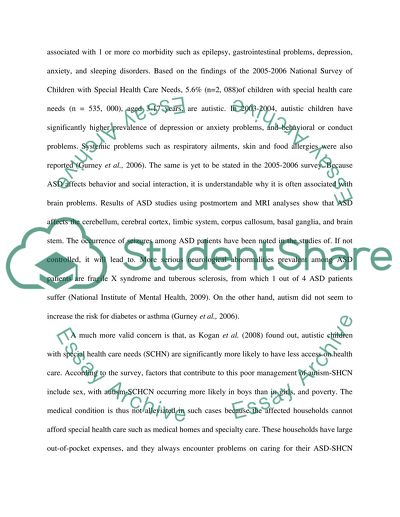Cite this document
(“Autism Spectrum Disorder (ASD) Research Paper Example | Topics and Well Written Essays - 1500 words”, n.d.)
Retrieved from https://studentshare.org/family-consumer-science/1416518-1are-autistic-children-vulnerable-to-other-health-issues-or-illness-2-are-they-exposed-to-other-health-risks-that-they-are
Retrieved from https://studentshare.org/family-consumer-science/1416518-1are-autistic-children-vulnerable-to-other-health-issues-or-illness-2-are-they-exposed-to-other-health-risks-that-they-are
(Autism Spectrum Disorder (ASD) Research Paper Example | Topics and Well Written Essays - 1500 Words)
https://studentshare.org/family-consumer-science/1416518-1are-autistic-children-vulnerable-to-other-health-issues-or-illness-2-are-they-exposed-to-other-health-risks-that-they-are.
https://studentshare.org/family-consumer-science/1416518-1are-autistic-children-vulnerable-to-other-health-issues-or-illness-2-are-they-exposed-to-other-health-risks-that-they-are.
“Autism Spectrum Disorder (ASD) Research Paper Example | Topics and Well Written Essays - 1500 Words”, n.d. https://studentshare.org/family-consumer-science/1416518-1are-autistic-children-vulnerable-to-other-health-issues-or-illness-2-are-they-exposed-to-other-health-risks-that-they-are.


